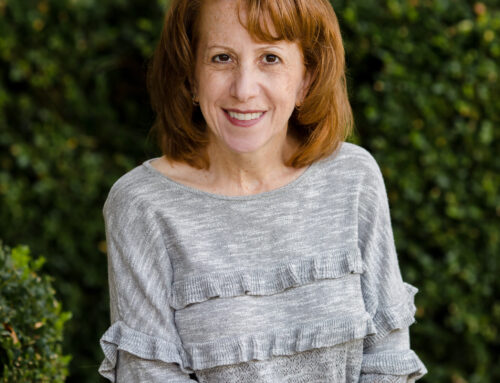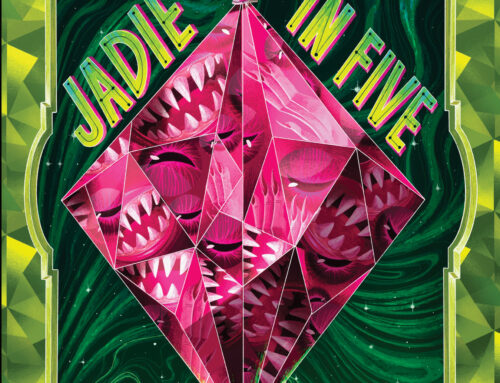May B., the first novel by Caroline Starr Rose, garnered wonderful reviews and numerous awards. Her second novel, BLUE BIRDS, releases tomorrow and has already received great praise.
“Composed in varying formats, the descriptive and finely crafted poems reveal the similarities the two girls share, from loved ones lost to hatred between the English and the Roanoke to a desire for peace… Fans of Karen Hesse and the author’s May B. (2012) will delight in this offering.”—Kirkus Reviews
“A memorable account of a friendship that transcends culture and prejudice.”—Publishers Weekly
The story – It’s 1587 and twelve-year-old Alis has made the long journey with her parents from England to help settle the New World, the land christened Virginia in honor of the Queen. And Alis couldn’t be happier. While the streets of London were crowded and dirty, this new land, with its trees and birds and sky, calls to Alis. Here she feels free. But the land, the island Roanoke, is also inhabited by the Roanoke tribe and tensions between them and the English are running high, soon turning deadly.
Amid the strife, Alis meets and befriends Kimi, a Roanoke girl about her age. Though the two don’t even speak the same language, these girls form a special bond as close as sisters, willing to risk everything for the other. Finally, Alis must make an impossible choice when her family resolves to leave the island and bloodshed behind.
In the midst of all that happens during a book launch, Caroline was kind enough to answer a few questions for the Mafia. Enjoy!
Thank you so much for taking the time to visit with the Mafia! Your bio is so interesting! Was your path to publication as adventurous as your childhood?
Adventurous is a great word to describe the publication process, for sure. It took me twelve years, four novels, six picture books, and hundreds of rejections to sell my first book, May B. I’m so grateful I had no idea it would take that long because I wouldn’t have had the courage to keep trying. But I kept on plugging away, trusting the next book and next editor would be a perfect fit.
Can you tell us a little bit about your new novel Blue Birds, and the inspiration behind it?
There are always a few things that lead to a book, but I’m not fully aware of them at the beginning. I was drawn to the Lost Colony story while teaching fifth-grade social studies. I hadn’t thought about those 117 missing people and their mysterious last word, CROATOAN, since my own school days. Coincidentally, our Scholastic book order had several books about the Lost Colony available at the same time. I ordered them and shared what I was learning with my students. This is where the seeds of the story began.
But I can look further back and see that Alis and Kimi’s friendship came from my own girlhood relationships. I relied a lot on those feelings of belonging, the intensity and sincerity of those early bonds to tell the girls’ story.
There are so many decisions to make when beginning a novel. When did you decide to write Blue Birds in verse and why?
As strange as it sounds, verse has become my default. I find it a really in-the-moment way to write historical fiction. It’s immediate, spare, and lets us into a character’s inner life very quickly.
For this book in particular, verse also became a wonderful way to tell a story in two voices. Readers move quickly from Kimi to Alis and back again. And when the girls share a poem, I was able through line and stanza placement to “speak” their story visually, adding one more layer of communication. Verse is magical that way!
How has the launch of your second book been different than your first?
I’m a whole lot calmer, for one thing! The first time around, I was ready to hide under my bed a few days before May B. released. It felt a lot like giving birth, that moment when you realize this is all for real and there’s no backing out. I’d worked myself up so much I ended up sick for a week after all the May hoopla was over.
This time around I’ve held myself at a bit of a distance. It’s difficult waiting for reviews, and it’s hard not to see reviews as somehow a reflection of my personal worth. Even when they’re wonderful, the anticipation is emotionally exhausting for me. But at this moment, with Blue Birds releasing in just a few days, I’ve let myself move into a celebratory phase. This book was a tremendous amount of work and I’m fiercely proud of it. I want to honor the years of research and writing that came before.
One last thing. With my first book I felt compelled to try as many things as I could to try to draw attention to the book. This time around I feel like I have a more realistic picture of what an author’s efforts can really do (not much, unfortunately). So I decided I’d do things that felt fun. It’s been a much more managable approach and one I’ve enjoyed.
Share a little bit about your process. How much do you know about your story before you begin? Do you set word goals, etc.?
I never seem to come to writing the same way twice, but there are a few patterns I follow. I spend a good number of months researching an era or event that interests me. This is long before I have an idea for a story. As I read I fill up a notebook with quotes, questions, maps, facts, lists, and the like. I trust a story will start bubbling to the surface the more I learn. So far this notion hasn’t let me down.
Very, very rarely to I think about word count. When writing verse, that’s a very discouraging goal, as a regular day for me is 250-300 words, a great day is 500, and an out of this world day is 750. Pretty meager, right? Sometimes I’ll commit to five poems for the day. More often, though, I say I have to stay with the writing for a minimum of two hours. Often I go past this, but on those hard days, just making myself sit with the characters in the very least helps ground me for the next day’s session.
I love your blog! On it, you wrote, “For much of my life, I’ve been a self-proclaimed book snob. Many writers talk of becoming more and more critical as readers the longer they write. For me, some sort of weird opposite has happened. Because I know first hand of the hard work the writing life demands, I’m learning to appreciate books, topics, and styles I would have ignored years ago.”
What else have you learned from writing your own books?
With every book I pick up, I see examples of skills I haven’t yet mastered. I’ve learned the more narrow my focus in writing, the more intensely readers will respond, even if the numbers of readers I have is small. (In other words, my books can’t be all things to all readers. If I try to be this, I won’t be writing into the hearts of anyone). I’ve learned I have to be vulnerable in my writing, examining parts of myself that might be unflattering in order to tell the most truthful, powerful story.
(This post (http://carolinestarrrose.com/5-ways-im-learning-write-smart-not-scared/) was one of my favorites.) Writing, blogging, school visits, a family – how do you fit it all in?
Thank you! That post came out of some email conversations with a dear writing friend as well as a goal-setting discussion at my local SCBWI chapter.
My life is small and quiet. I don’t see those words as negative but beautiful. I want to have time to walk the dog, do the Sunday crosswords, nap a few days a week. While I am often busy, I’m not the insane busy I sometimes was while teaching and writing and parenting. I left teaching because I realized I wasn’t giving my best to anyone. As much as I loved it, trying to do it all really depleted me. In a lot of ways, I feel like I’ve chosen a pretty counter-cultural approach to life, but it’s what is healthiest and most satisfying for me and my family.
Just today I read a blog post that said real writers don’t make excuses. They push through. The example was a sick woman who still got up and did her work. That’s so not what I want. If I’m sick, I want books and tea and rest. Hard work is good and honorable, but so is rest.
I’m also not above sandwich night / serve yourself dinners on busy sports nights. And my wonderful husband does the laundry and dishes. I do need to say I’m speaking from a position of privilege and I know it. Not everyone can step away from the day job (or even wants to). Not everyone can afford to write at a slower pace. I’m super grateful these are choices I can make.
Thanks again, and good luck with the new book!
You can buy a copy of BLUE BIRDS at the usual places, including Amazon, Powell’s, and Barnes and Noble.
Learn more about Caroline Starr Rose at her website or follow her on Twitter.







Such a great interview! I recognized much of myself here… Very excited to read Blue Birds!